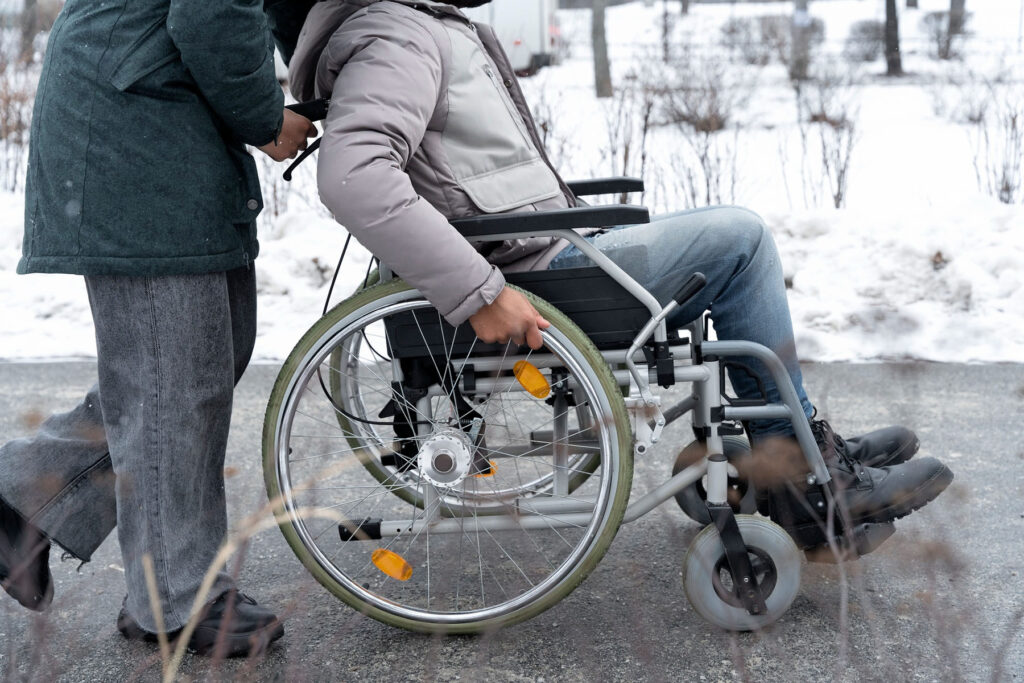I am Mariya Borevich, your personal lawyer. My primary goal is to help clients find optimal solutions to current legal issues, ensuring reliable protection of their interests. I specialize in family, civil, and military law, which allows me to effectively handle a variety of situations and cases. In family law, I provide support in resolving issues related to divorce, property division, establishing and challenging parental rights, alimony, and child custody. I understand that these matters are often emotionally complex, so I always strive to find the most delicate and fair solutions for all parties involved. In civil law, I assist in settling disputes related to contracts, property rights, compensation for damages, inheritance, and other issues concerning the protection of personal and property interests. Special attention is given to military law — supporting servicemen, protecting their rights and interests related to military service, social guarantees, and legal disputes. This area requires deep knowledge and understanding of the specifics of military service and the legislation regulating it.
A person with a disability is a person who has permanent health impairments that limit their physical, mental, sensory or intellectual capabilities. These impairments can be congenital or acquired due to injury, disease or other factors, and are usually documented by medical records and classified by disability groups. Accompanying persons with disabilities abroad is possible in several basic cases, depending on the category of disability, circumstances and purpose of the trip.
The main situations when such support is allowed and usually provided:
- Treatment or medical rehabilitation abroad: traveling abroad to receive medical assistance or undergo rehabilitation is possible subject to the availability of supporting documents from medical institutions. This requires referrals from a doctor, medical certificates or an invitation from a foreign clinic. In the case of martial law, this option allows the accompanying of a person with a disability by relatives or other authorized persons.
- Humanitarian needs or evacuation: During a period of martial law or emergency, persons with disabilities may travel abroad for the purpose of evacuation. This is usually for individuals who require a secure environment or specialist care if this cannot be arranged locally. This may also require documents confirming the state of health and the need for accompaniment.
- Participation in programs or activities for people with disabilities: If a person with a disability is invited to special events, conferences or programs for people with disabilities, departure may be allowed for a certain period. As a rule, an invitation to the event or confirmation of participation is required.
Question
What documents are required to prove disability?
Respond
To confirm the status of a person with a disability, appropriate documents are required (certificate of disability, medical reports), as well as documents for an accompanying person (if accompanying is necessary).
If a person needs special legal support or has difficulties with the preparation of documents, the services of a military lawyer of the "Consultant" legal service can come in handy to ensure all formalities and resolve possible legal issues. Consultation with a lawyer will help to understand the conditions of travel abroad for persons with disabilities, in particular during wartime, and to provide legal training and appropriate support.
Accompanying persons with disabilities when crossing the border includes special procedures and support to ensure comfort and safety during the journey. If you are planning to cross a border with a person with a disability, here are some key aspects and services you may need:
- Preliminary preparation of documents: a person with a disability may need a medical opinion or certificate of disability to confirm his status. If the person is traveling with an accompanying person, documentation proving custody or care may also be required.
- Issuance of special permits: some categories of persons with disabilities have the right to a simplified procedure for crossing the border. This is especially relevant in the conditions of martial law, if we are talking about leaving the combat zone or for treatment. If necessary, a lawyer can help obtain a travel permit for a person with a disability or an accompanying person - a permit of the TCC permit for traveling abroad.
- Ensuring accessibility during travel: Special needs (such as access for people with reduced mobility) can be notified in advance to border officials and carriers. Assistance services for persons with mobility difficulties may be available at customs and border crossings.
A lawyer can advise on special requirements when crossing the border for a certain group of disabilities and help prepare documents. The lawyer of the "Consultant" marketplace will also help with legal issues that may arise in the event of a delay at the border or requests for additional documents from the border services, namely a TCC certificate. If you have specific requests regarding the preparation of documents or special border crossing conditions for persons with disabilities, consultation with a lawyer will help you prepare for your trip and avoid unnecessary difficulties.
So, in order to organize a trip abroad for men in connection with accompanying a wife with a disability of the 3rd group abroad, it is necessary to take into account several basic steps and prepare certain documents:
Obtaining permission to cross the border: permission to accompany a person with a disability abroad can be granted both to conscripts and to persons who are on military registration.
Documents confirming the status of the accompanied person and the family relationship: marriage certificate, documents confirming the wife's disability (disability certificate), a certificate on the need for accompaniment (from a doctor justifying the need for constant care or support).
Military registration and possible restrictions: if a conscript accompanies a person with a disability, a corresponding confirmation from the TCC on permission to leave may be required.
The TCC certificate for traveling abroad is an official document that confirms the right of certain categories of citizens to temporarily travel outside Ukraine during martial law. This certificate is necessary for persons who are entitled to deferment from mobilization or other citizens who can go abroad according to the law. The presence of all the necessary documents and their correct registration increase the chances of obtaining a permission to accompany without any problems.
Legal assistance when accompanying a wife with a disability of the 3rd group abroad may include the following stages:
- Consultation on the grounds of departure: determining the legal conditions for crossing the border by persons with disabilities, including checking the presence of medical indications and social circumstances that may give the right to leave.
- Preparation of documents: assistance in the preparation of certificates confirming disability (medical reports, MSEK) and any other documents necessary for crossing the border.
- Applying to the TCC for issuing permits, travel abroad for men: if necessary, obtaining a certificate from the territorial recruitment and social support center (TCC and SP) to confirm the legality of departure, TCC permit.
- Legal support at the border: in case of possible legal issues when crossing the border.
Contacting a lawyer or military attorney can help with the correct paperwork and preparation for filing an application with the TCC to obtain TCC approval, as well as with gathering additional information if there are special requirements or circumstances.

































